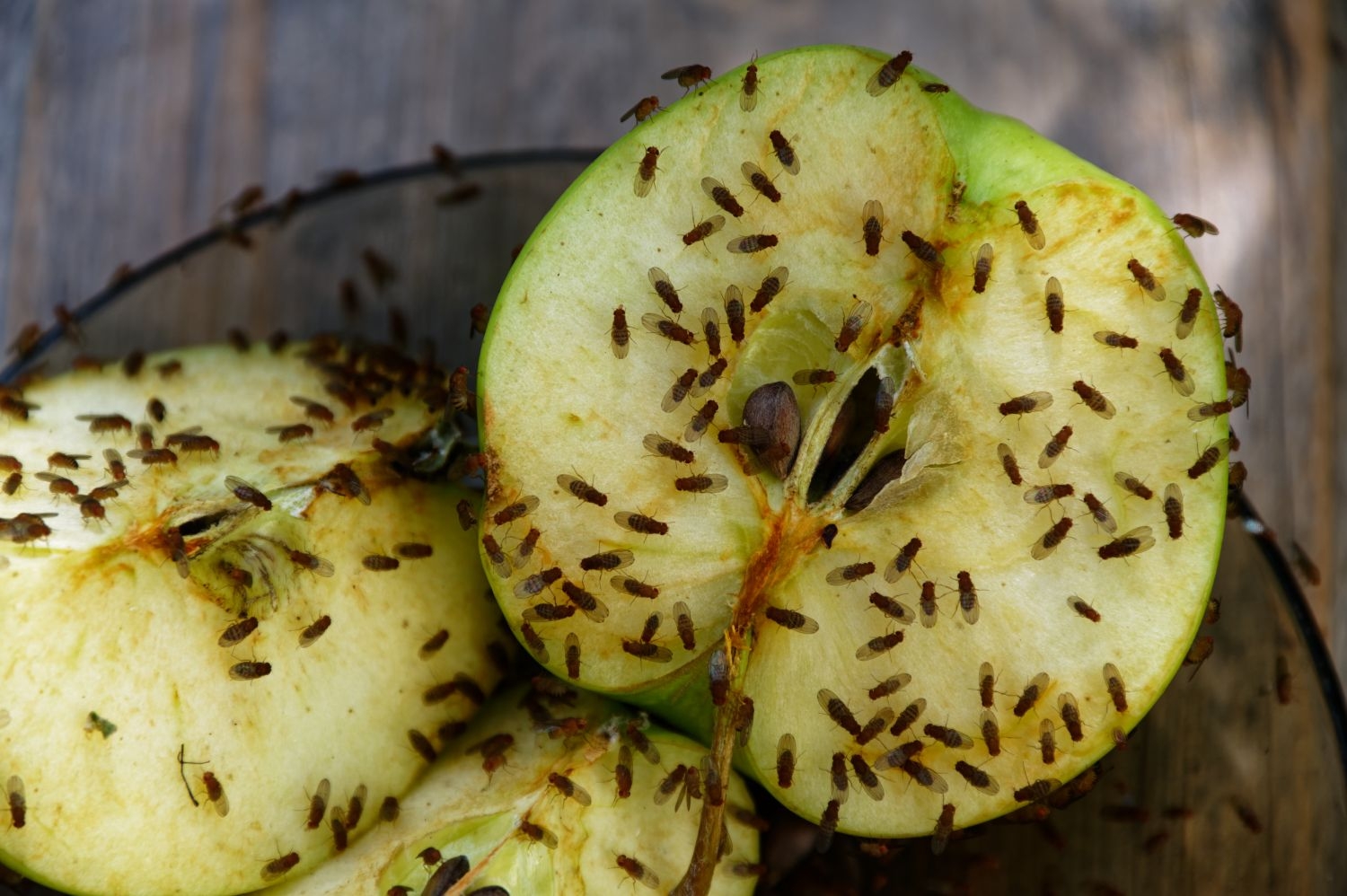Fruit flies, scientifically known as Drosophila melanogaster, are small insects that are commonly found in homes, particularly around ripe and rotting fruits. Despite their tiny size, fruit flies play a significant role in scientific research due to their short lifespan and rapid reproduction cycle. These insects have become a valuable model organism in genetics and developmental biology studies.
One of the most striking features of fruit flies is their red eyes, which give them a distinctive appearance. These insects are equipped with a pair of transparent wings and a slender body that allows them to navigate through the air with ease. Fruit flies are known for their ability to hover and dart quickly, making them a challenge to catch.
Picture Fruit Fly

Despite their pesky reputation in homes and kitchens, fruit flies are incredibly fascinating creatures. They have a keen sense of smell and are attracted to the scent of fermenting fruits, which is why they are commonly found near fruit bowls and compost bins. Fruit flies feed on the yeast that grows on decaying fruits, making them an essential part of the ecosystem’s waste decomposition process.
In scientific research, fruit flies have been instrumental in uncovering important genetic principles. Their short lifespan of around 10-14 days allows researchers to study multiple generations quickly. By manipulating the fruit fly genome, scientists have been able to uncover key insights into how genes work and how they influence traits and development.
Furthermore, fruit flies exhibit complex behaviors that have provided valuable insights into neuroscience. These insects display intricate courtship rituals, learning and memory capabilities, and responses to various stimuli. Studying fruit fly behavior has helped scientists understand fundamental principles of brain function and behavior.
In conclusion, fruit flies may be small insects, but they have made a big impact in the world of science. Their unique characteristics and genetic makeup have made them invaluable tools for researchers studying genetics, development, and behavior. By unlocking the mysteries of the fruit fly genome, scientists continue to gain valuable insights into fundamental biological processes.
